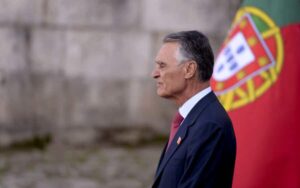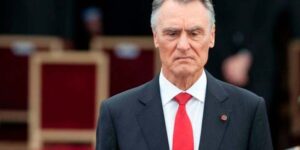Portuguese President Aníbal Cavaco Silva was quick to express his condolences over the death of former South African president and symbol of freedom Nelson Mandela, but hours later he was embroiled in an embarrassing political scandal as it emerged that in 1987, as Prime Minister of Portugal, he had voted against the release of Mandela – then still incarcerated in the infamous Robben Island jail.
The scandal spread like a bush fire shortly after Cavaco Silva’s office sent a message to South Africa’s President, Jacob Zuma, calling Mandela “a greater figure of South Africa and of world history”. Criticism came from all sides – from Parliament to social media – decrying Cavaco’s decision taken during a United Nations’ meeting in 1987.
Communist Member of Parliament (MP), António Filipe, was the first to mention this less than auspicious moment in the President’s long political career.
“In 1987, when the general assembly of the United Nations approved a resolution demanding the unconditional freedom of Nelson Mandela, that same resolution received three votes against, just three votes against, from Ronald Reagan, USA; Margaret Thatcher, UK; and Portugal, represented by Cavaco Silva,” he told colleagues in Parliament.
António Filipe was backed up by Helena Pinto, a member of the Left Wing Party (BE), who claimed that “Portugal was on the wrong side of things in 1987, when it voted against the unconditional release of Nelson Mandela”.
Cavaco Silva has since ordered his office to reveal the details of the 1987 declaration of vote. According to the document, Portugal voted against the release of Nelson Mandela because it was thought that the UN resolution encouraged violence and armed resistance.
Stressing that the Portuguese government “condemned the apartheid regime”, the document explained that Portugal had “some reservations regarding a few aspects” of the resolution.
In fact, during that UN meeting – which took place on November 20 1987 – there were eight resolutions up for a vote. Two mentioned the release of Nelson Mandela – who at the time had been imprisoned by the apartheid regime for more than 25 years.
Portugal came out against one of the resolutions and in favour of another, while it abstained or voted against the remaining measures, which concerned economic sanctions, said the document.
Riding the storm of criticism and strident accusations of hypocrisy, Cavaco Silva joined other world leaders at Mandela’s state funeral this week in Johannesburg.
Nelson Mandela, South Africa’s first black president and the leader of the anti-apartheid movement, died peacefully in his family home in Johannesburg on December 5. He was 95 years old.





















